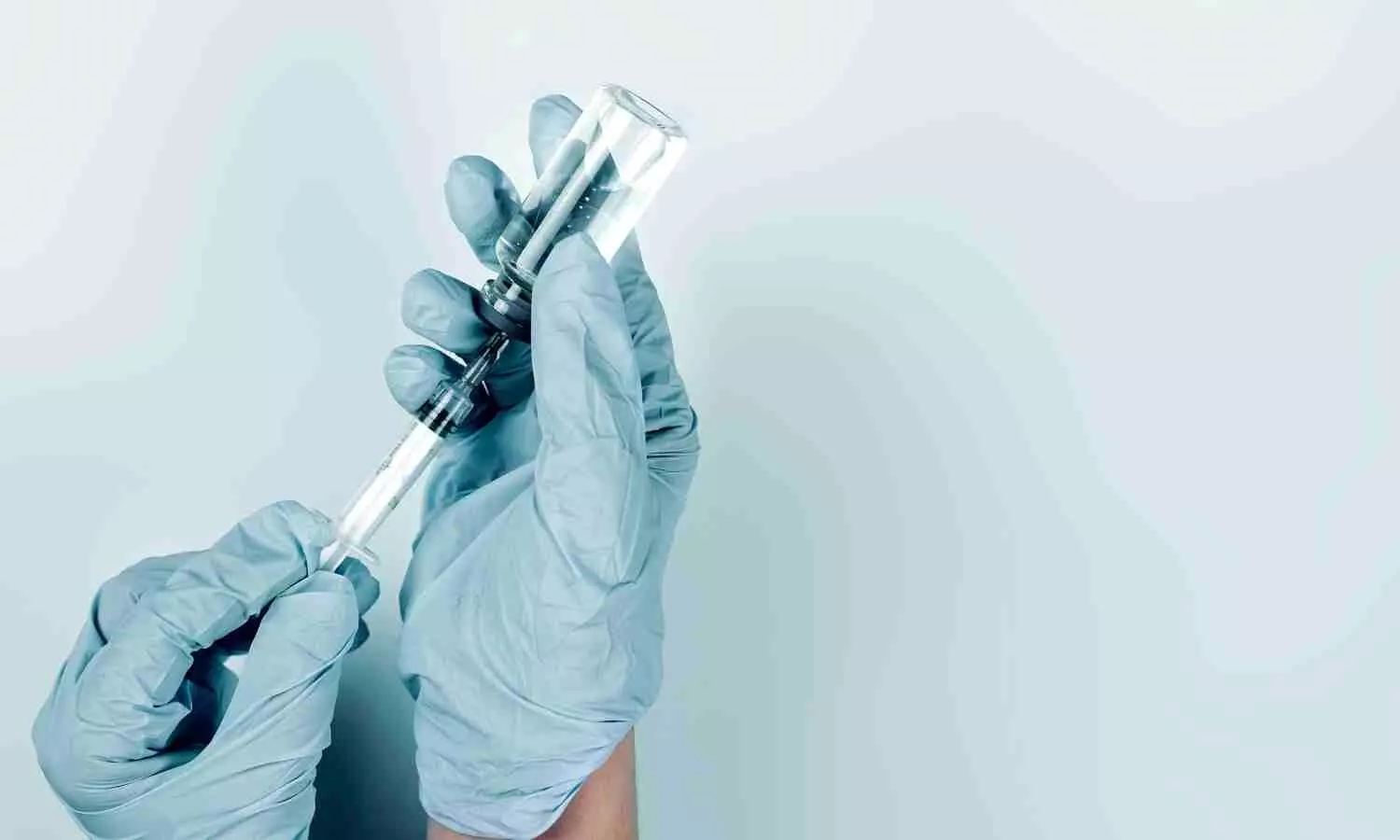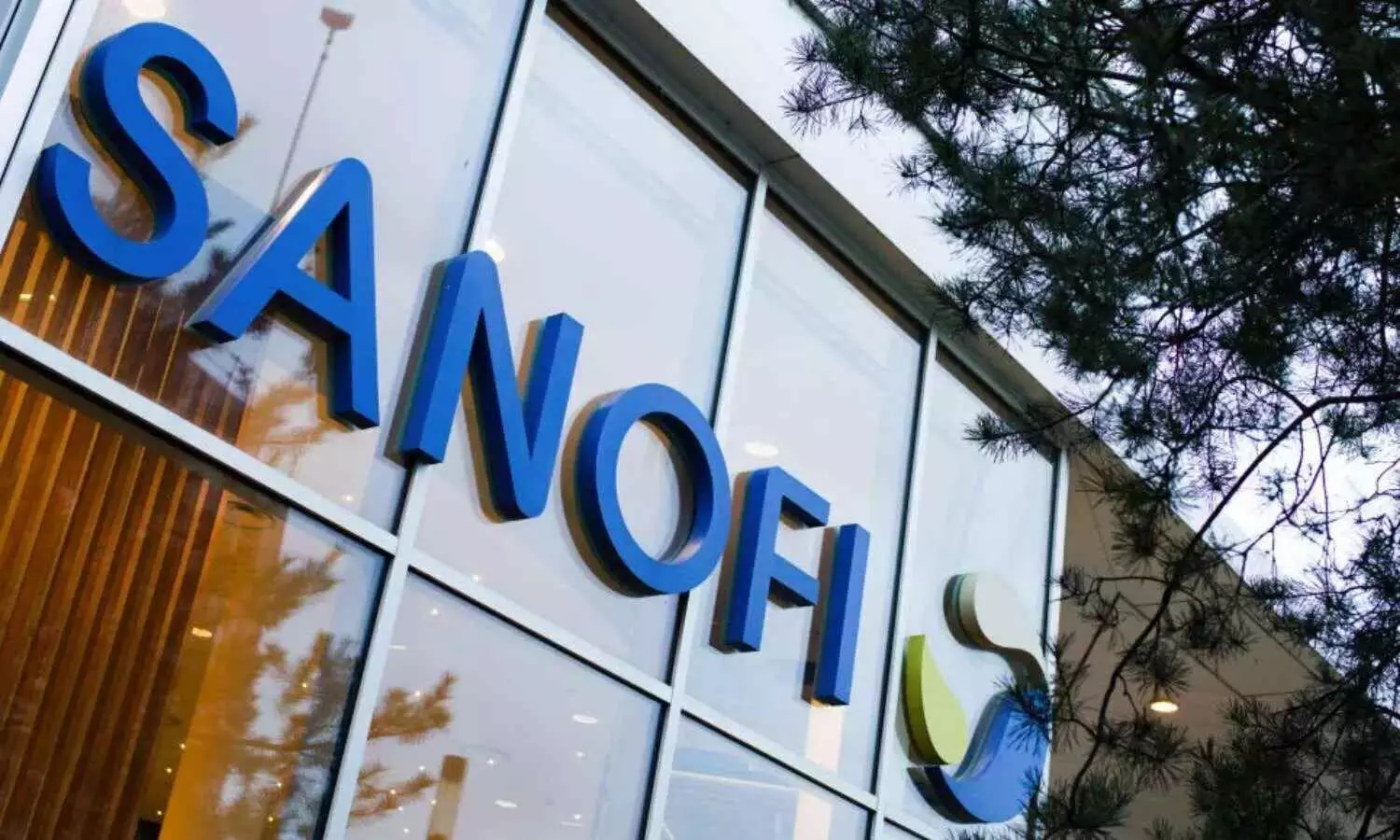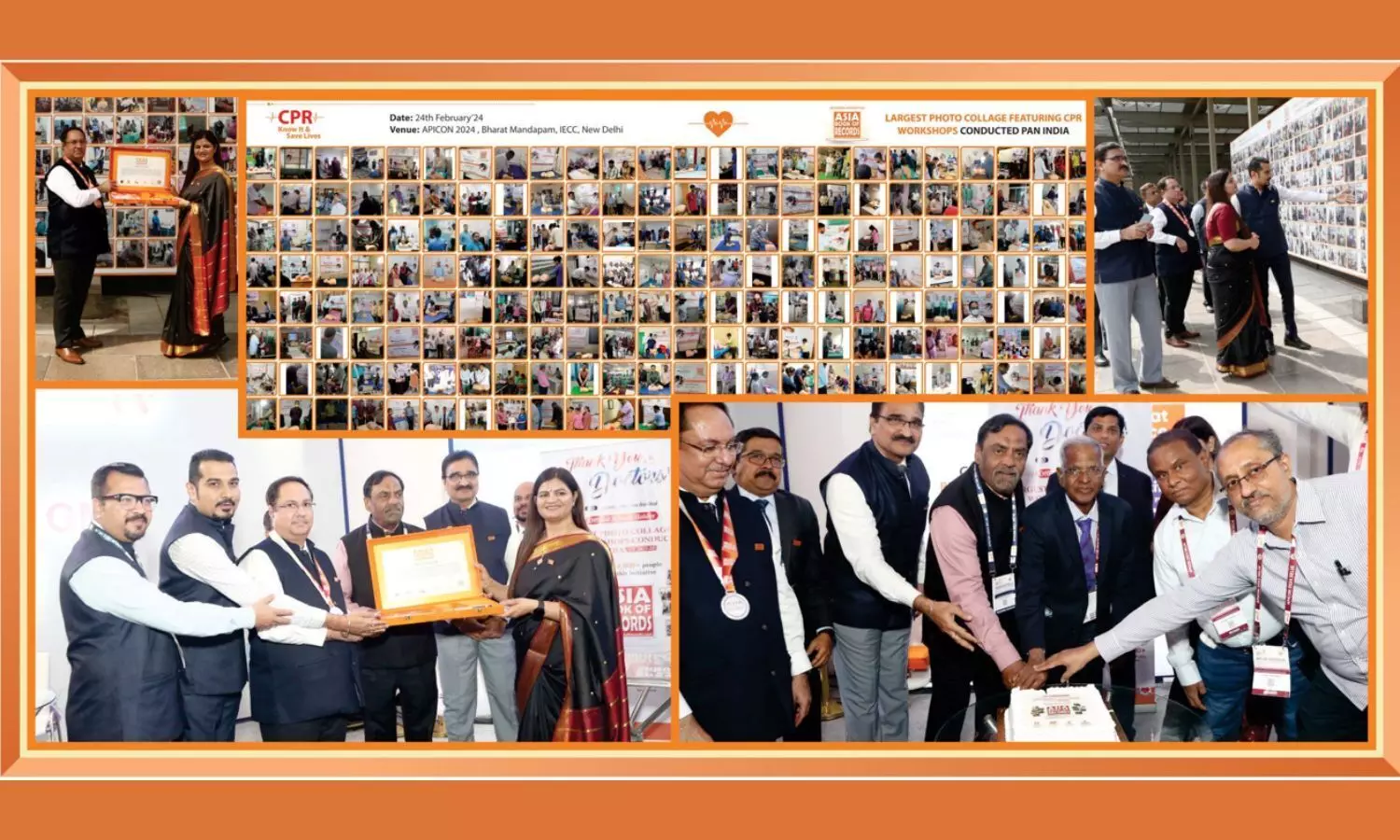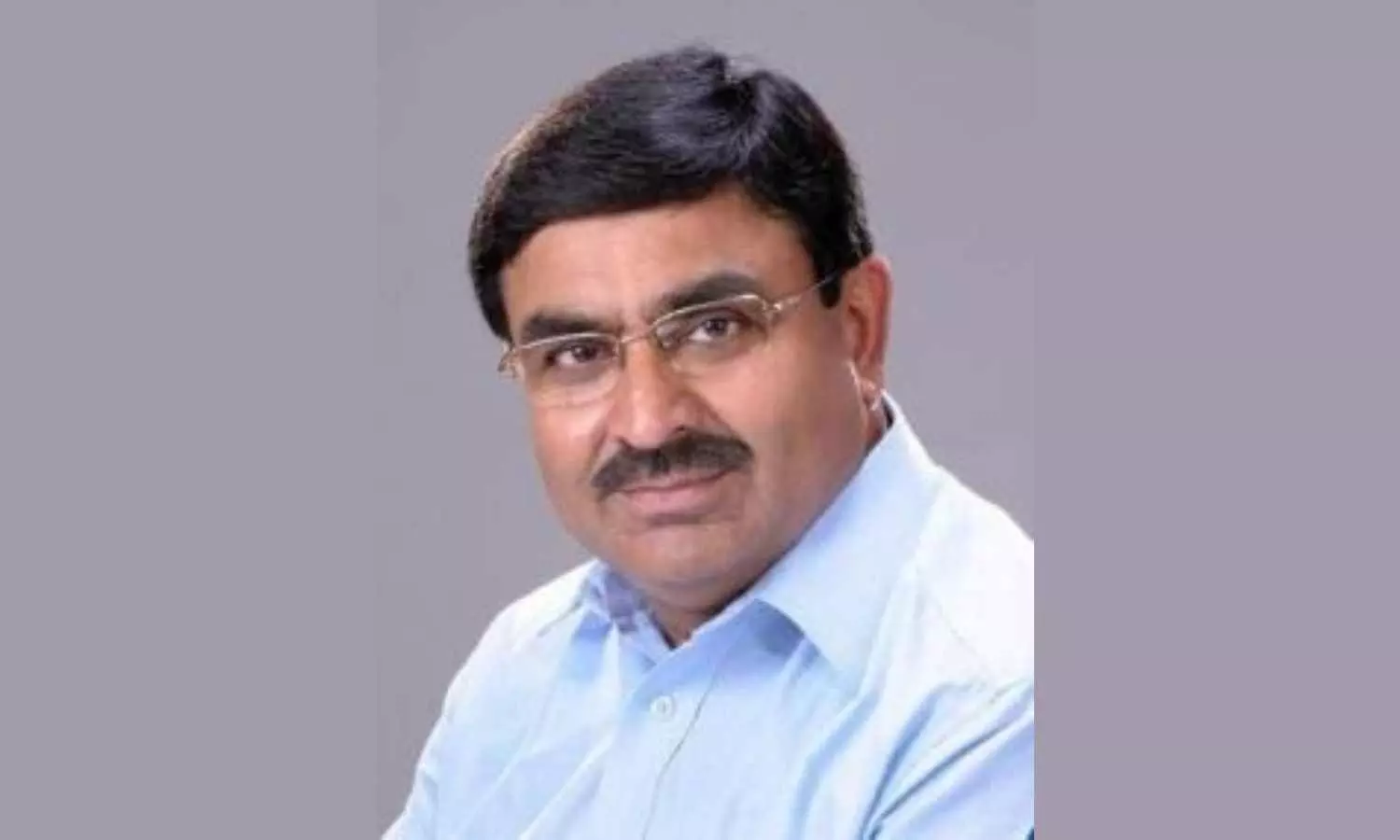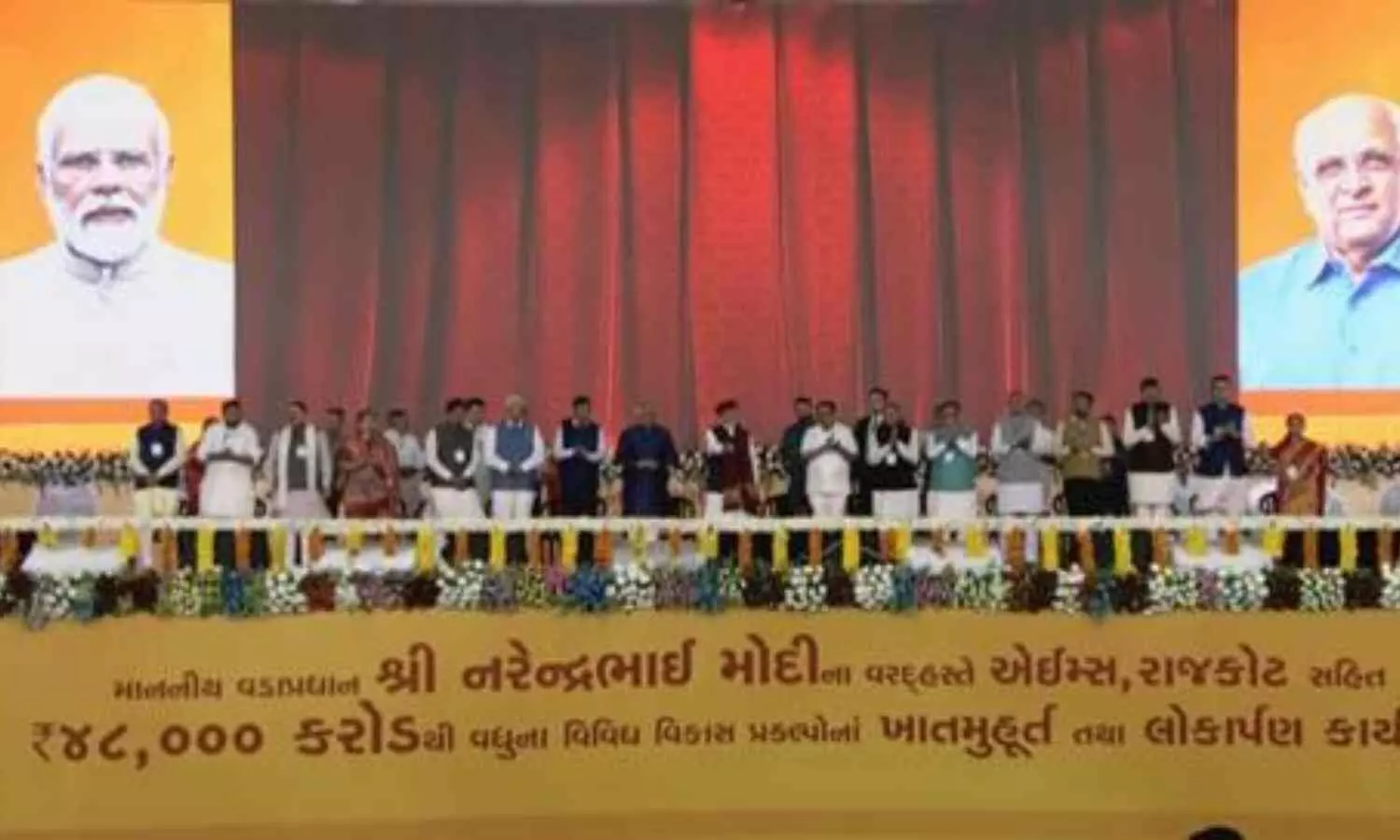
Rajkot: In a landmark development towards strengthening India’s tertiary health care infrastructure and services, Prime Minister Shri Narendra Modi yesterday dedicated to the nation five All India Institute of Medical Sciences (AIIMS) at Rajkot (Gujarat), Bathinda (Punjab), Raebareli (Uttar Pradesh), Kalyani (West Bengal) and Mangalagiri (Andhra Pradesh).
He also inaugurated, laid foundation stone of, and dedicated to the nation a total of 202 Health Care Infrastructure Projects worth more than Rs. 11,700 crores across 23 States and UTs.
Dr Mansukh Mandaviya, Union Minister of Health and Family Welfare; Shri Bhupendrabhai Patel, Chief Minister, Gujarat; Shri MahendraMunjapara, Minister of State for AYUSH & Woman and Child Development and Shri Rushikesh Patel, Health Minister, Gujaratwere present on the occasion. Hon’ble Governors, Union Ministers, Chief Ministers, State Health Ministers, Cabinet Ministers, and Members of Parliament and Legislative Assemblies also virtually joined the event from various locations across the country.
Also Read:PM Modi to inaugurate 250-bed IPD at AIIMS Rajkot on February 25
Addressing the gathering, the Prime Minister said, “The dedication of 5 AIIMS today gives a glimpse of how healthcare infrastructure will evolve in Viksit Bharat.” Highlighting that “only one AIIMS in New Delhi was serving the country for a long time”, he said that “Today there are many new AIIMS functioning in different capacities across the nation”. He also stated that “The multiple foundation stone laying and inauguration projects taking place across the country including these 5 AIIMS inaugurated today showcases a new tradition of getting work done at a faster pace”.
Highlighting some major milestones achieved during the last 10 years, the Prime Minister said that “from around 380 medical colleges in 2014, there are over 700 medical colleges today. PG and MBBS seats have more than doubled from 2014 and Jan AushadhiKendras have expanded to more than 10,000 units today across the country.”
The Prime Minister also pointed out that the foundation stone for AIIMS Rajkot was laid by him 3 years ago and that promise is fulfilled today. Similarly, a promise of an AIIMS was given to Bathinda, Raebareli, Mangalagiri, Kalyani, and Rewari AIIMS. In the last 10 years, 10 new AIIMS have been sanctioned in different states. He also extended his best wishes to residents of all cities where the AIIMS were inaugurated today.
In addition to the 5 AIIMS, the 202 Healthcare Infrastructure projects that were virtually inaugurated and foundation stone laid include the following:
Dedication of Medical College of Jawaharlal Institute of Postgraduate Medical Education and Research (JIPMER) at Karaikal, Puducherry and a 300-bedded Satellite Centre of Post Graduate Institute of Medical and Educational Research (PGIMER) in Sangrur, Punjab; a 90-bedded Multi Specialty Consulting Unit of JIPMER at Yanam, Puducherry; a National Centre for Ageing in Chennai; a new Government Medical College in Purnea, Bihar; 2 field units of Indian Council of Medical Research (ICMR) namely, National Institute of Virology (NIV) Kerala Unit, at Alappuzha, Kerala and National Institute of Research in Tuberculosis (NIRT): New Composite TB Research Facility, Tiruvallur, Tamil Nadu among others.
Foundation stone laying of various health projects including a 100-bedded Satellite Centre of PGIMER at Ferozpur, Punjab; a new Medical College building in RML Hospital, Delhi; one Critical Care Block in Regional Institute of Medical Sciences (RIMS), Imphal; Nursing Colleges at Koderma and Dumka in Jharkhand, among others.
Under the National Health Mission (NHM) and Prime Minister-Ayushman Bharat Health Infrastructure Mission (PM-ABHIM), the Prime Minister inaugurated, dedicated to the nation and laid foundation stone of 115 projects. These include 78 projects under PM-ABHIM. Of these, foundation stone was laid for 57 Critical Care Blocks (CCBs) with total amount of more than Rs. 1,625 Crore; 8 Integrated Public Health Laboratories (IPHLs) with total amount of Rs. 10 Crore and 4 Block Public Health Units (BPHUs) with amount more than Rs. 3 Crore. In addition, 7 IPHLs with total amount more than Rs. 8 Crore and 9 BPHUs with amount more than Rs. 6 Crore were dedicated to the nation today.
Under NHM, 29 projects (8 PHC, 16 CHC, 1 Model Hospital, 3 MCH wings 100 bedded and 1 District Warehouse) with amount more than Rs. 290 Crore were inaugurated/ dedicated to nation and foundation stone laid for 1 Transit Hostel for Medical Officers with amount of Rs. 1.98 Crore.
Inauguration of National Institute of Naturopathy named ‘Nisarg Gram’ at Pune, Maharashtra. It comprises one Naturopathy Medical College along with a 250-bedded hospital with Multi-disciplinary Research and Extension Centre.
Inauguration of Central Research Institute of Yoga & Naturopathy at Jhajjar, Haryana. It will have apex-level Yoga and Naturopathy Research facilities.
Inauguration of 10 new Microbiology Laboratories established by the Food Safety Standard Authority of India (FSSAI) with a total cost of approximately Rs. 45 crores in State Food Testing Laboratories (SFTLs) across eight states – Uttar Pradesh (Lucknow, Meerut), Kerala (Ernakulum, Kozhikode), Maharashtra (Mumbai), Chhattisgarh (Raipur), Assam (Guwahati), Delhi (North West Delhi), Andhra Pradesh (Vishakhapatnam) and Tamil Nadu (Coimbatore).
These laboratories will play a critical role in ensuring food safety by detecting various microorganisms, including pathogens in food products. 53 Mobile Testing Laboratories, known as Food Safety on Wheels (FSW) were also inaugurated in different States/UTs, which include Assam (17), Andhra Pradesh (4), Chandigarh (1), Himachal Pradesh (3), Jammu & Kashmir (6), Meghalaya (2), Uttar Pradesh (18) and Uttarakhand (2).
Background:
The 5 AIIMS at Rajkot, Bathinda, Raebareli, Kalyani and Mangalagiri have been constructed at a total cost of Rs. 6315.23 crore.
AIIMS Mangalagiri is a 960-bed hospital complex built at a cost of 1618.23 crores. It is spread over an area of 183.11 acres. It has a medical college with 125 seats.
AIIMS Raebareli is a 610-bed hospital complex with 30 Emergency & Trauma and ICU & Super Specialty beds. It has a Medical College with 100 seats and 12 Operation Theatres including 2 Emergency & 2 Obstetrics OTs. Its total project cost is Rs. 823 crores.
AIIMS Rajkot is built at a cost of Rs. 1195 crores. It is a 750-bed hospital complex with a 50-seat medical college and encompasses an area of 201 acres.
AIIMS Bathinda is a 750-bed medical institute built on 177 acres of land. It has 10 Specialty departments, 11 Super-Specialty departments and 6 Operation Theatres and 30 Emergency & Trauma and ICU & Super Specialty beds. AIIMS Bathinda has a Medical College with 100 seats and a Nursing College with 60 seats. Its total project cost is Rs. 925 crores.
AIIMS Kalyani is a 960-bed hospital built on 179.82 acres of land. It has a Medical College with 125 seats, a Nursing College with 60 seats and an AYUSH block with 30 beds. Its total project cost is Rs. 1754 crores.
![]() Also Read:Former Union Minister Dr Vallabhbhai Kathiria resigns as AIIMS Rajkot President
Also Read:Former Union Minister Dr Vallabhbhai Kathiria resigns as AIIMS Rajkot President


